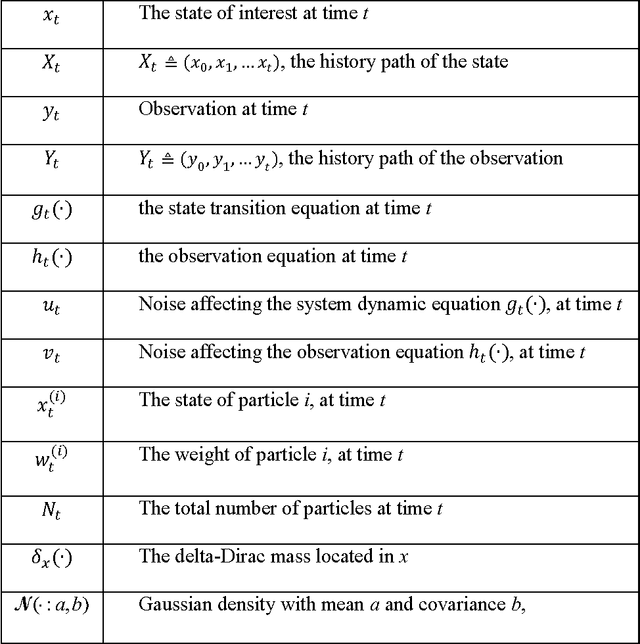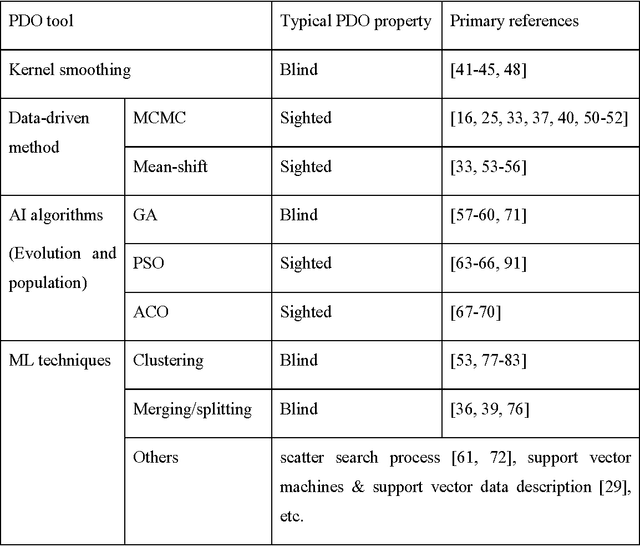Juan M. Corchado
Fighting Sample Degeneracy and Impoverishment in Particle Filters: A Review of Intelligent Approaches
Jan 09, 2014



Abstract:During the last two decades there has been a growing interest in Particle Filtering (PF). However, PF suffers from two long-standing problems that are referred to as sample degeneracy and impoverishment. We are investigating methods that are particularly efficient at Particle Distribution Optimization (PDO) to fight sample degeneracy and impoverishment, with an emphasis on intelligence choices. These methods benefit from such methods as Markov Chain Monte Carlo methods, Mean-shift algorithms, artificial intelligence algorithms (e.g., Particle Swarm Optimization, Genetic Algorithm and Ant Colony Optimization), machine learning approaches (e.g., clustering, splitting and merging) and their hybrids, forming a coherent standpoint to enhance the particle filter. The working mechanism, interrelationship, pros and cons of these approaches are provided. In addition, Approaches that are effective for dealing with high-dimensionality are reviewed. While improving the filter performance in terms of accuracy, robustness and convergence, it is noted that advanced techniques employed in PF often causes additional computational requirement that will in turn sacrifice improvement obtained in real life filtering. This fact, hidden in pure simulations, deserves the attention of the users and designers of new filters.
* Expert Systems with Applications, 2014
 Add to Chrome
Add to Chrome Add to Firefox
Add to Firefox Add to Edge
Add to Edge